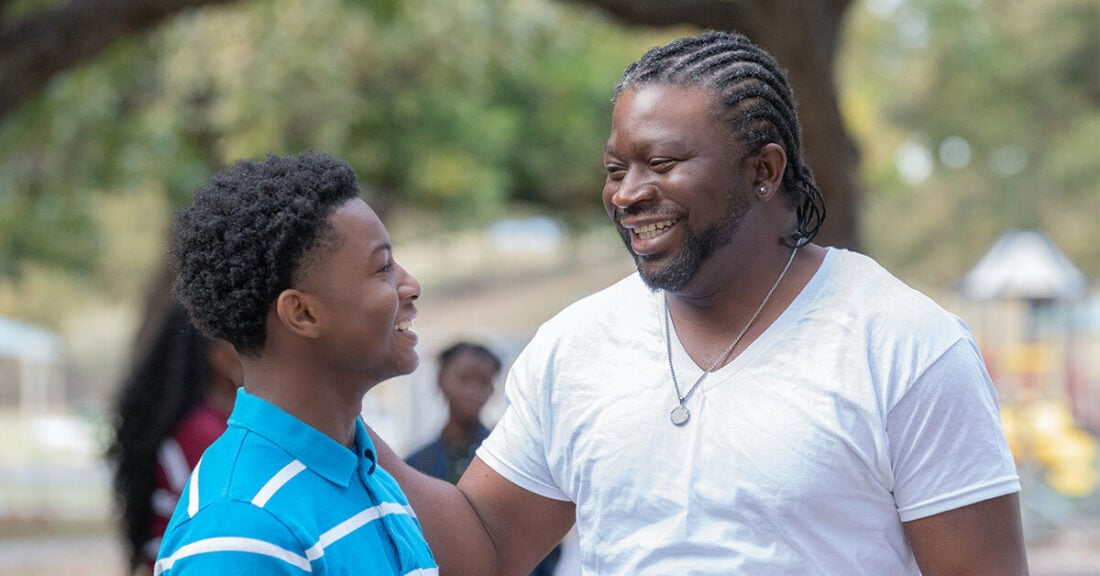South Carolina Pilot Helps Teens Stay With Families and Out of Foster Care

South Carolina is testing a new approach to keep teens out of foster care and with their families. The Teen Alternative Pathway Pilot (TAPP) is offering crisis support, therapy and community-based services to help parents and teens work through conflict and unmet needs at home. Since launching in March 2025, the program has helped more than 50 youths remain safely with their families instead of entering foster care.
A Prevention-Focused Pilot to Keep Teens at Home
Led by Thompson Child & Family Focus, supported by the South Carolina Department of Social Services (SCDSS) and with technical assistance from the Annie E. Casey Foundation, TAPP is part of Teaming for Teens, a partnership that includes schools, law enforcement, courts, community groups, child welfare and juvenile justice system leaders, mental health providers and families. Together, these partners are creating community-based solutions to reduce unnecessary foster care placements.
Why Teens Enter Foster Care — and How Families Can Be Supported
In South Carolina, at least half of teens entering foster care are placed because of family conflict, untreated trauma or unmet needs. Research shows that adolescence is a time of risk-taking and growing independence, which can heighten tensions at home. Too often, families and public agencies and the courts have had few options other than foster care. TAPP offers an alternative to family separations that helps families manage conflict, strengthen bonds and stay together, which benefits youth.
How the Teen Alternative Pathway Pilot Works
The pilot currently operates in Anderson, Greenville and Spartanburg counties, which have high rates of teens entering foster care — 29% compared to a national rate of 22%, according to a Foundation analysis of federal foster care data. Referrals come from professionals who work with youth — such as school workers, health care providers, law enforcement and Departments of Juvenile Justice and Social Services staff. Once a referral is made, trained facilitators quickly meet the family to stabilize the situation and provide support.
“In these three counties, we noted the number of youths who enter the child welfare system due to reasons such as parent-child conflict or the young person’s behavioral issues, and where the family just couldn’t manage,” said Jocelyn Gibson, co-lead for Teaming for Teens and placement services director in SCDSS. “With this program, the community knows there are other options, that foster care is not always right.”
Support Services That Strengthen Families
TAPP tailors services to each family’s needs, which can include:
- crisis stabilization and 24⁄7 assistance;
- family mediation and goal setting;
- meeting with other relatives, community members and staff from public agencies to help develop a plan to address the family’s needs;
- setting goals with the family;
- providing intensive therapy for up to six months;
- connections to resources such as housing or mental health care or conflict resolution skills training; and
- practical financial help, such as covering a security deposit.
These supports can last up to 90 days, giving families the tools they need to stabilize and thrive together.
“Some families just need help with resources and case management. For others, it’s supporting families experiencing challenging behavior. In some cases, it’s providing them with intensive therapy to help them avoid further involvement in the systems,” said Shawn Brown, South Carolina operations director for Thompson Child & Family Focus. “We look at the underlying causes of the family’s challenges and develop a plan to meet their goals and needs. Then we set them up with a solid discharge plan, so they’ll know where to go to access community resources in the future.”
A Collaborative Model
TAPP builds on the proven Family Assessment and Intervention Response model, which showed that home- and community-based services can safely reduce foster care placements. Program leaders meet regularly with school and community organizations to ensure that families know about this new resource. The Casey Foundation provides expertise to SCDSS as the state expands strategies to strengthen families.
“The TAPP program’s early promising results demonstrate what is possible when communities come together to keep youth connected to their families,” said Karen Angelici, senior associate with the Foundation’s Family Well-Being Strategy Group. “We’re hoping more states will adopt similar collaborative-based models to offer families more pathways to stability and well-being.”






